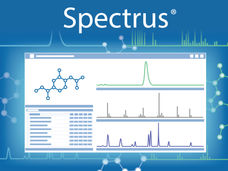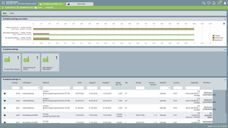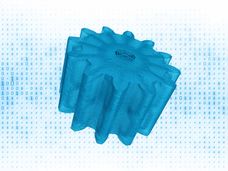Poll Reveals Data Management Inefficiencies Lengthen Drug Discovery Process
WESTBOROUGH, MA (June 3, 2002) - Inefficiencies in data management and a significant increase in the amount of data generated in today's modern laboratories are contributing to a slower drug discovery process, suggests a recent poll conducted by NuGenesis Technologies Corporation. The poll was taken by attendees of the company's Web seminar series, "Managing the Drug Discovery and Data Explosion" held earlier this year.
Inefficiencies in Data Management
The background of the participants in the poll included drug discovery groups in the life sciences, such as assay development, target identification and validation, and bio-analytical. Of the 137 attendees polled, 58 percent noted that they do not have a formal method to organize data electronically, and 22 percent stated that they still keep records by cutting and pasting into a notebook.
"All of the relevant information and data collection will ultimately be automated," explains John Helfrich, development manager for the drug discovery and development applications group at NuGenesis Technologies Corporation. "We're probably looking out five years, maybe even 10 years before 90 percent of the research population is finally transitioned to an electronic data management system."
Many laboratories are in the process of converting from a paper-based environment to an electronic one, to be compliant with current FDA legislation and to allow scientists to better manage their research data, and promotes sharing information across an organization. Data that is maintained in an electronic format can be interpreted, analyzed, reported, reviewed and used to make faster and more informed decisions - on whether to continue or abandon a line of research, for example.
Data Explosion
Nine out of ten poll respondents noted that their data management needs had risen dramatically over a year's time - increasing by half for 25 percent and doubling for 20 percent. One in three respondents cited a 25 percent increase in data management needs.
"The drug discovery arena is seeing an explosion of data today unlike anything that has been experienced before," comments Mr. Helfrich. "It has become essential to automatically capture the whole data profile from target identification, high throughput screening, medicinal chemistry and preclinical experiments into a single repository, so the research team can access and analyze the information in the most efficient way possible".
NuGenesis Technologies has developed the NuGenesis® Scientific Data Management System (SDMS) that captures data generated from any analytical instrument into a repository where scientists can locate, access, analyze and share it in order to make decisions quickly. The NuGenesis SDMS repository can also accept data from other software applications throughout the organization, for an integrated approach to data management.
NuGenesis Web seminars are scheduled regularly to assist scientists with their data management needs and to demonstrate how to effectively protect and manage intellectual property as well as comply with new regulatory guidelines (21 CFR Part 11). More information on NuGenesis Technologies seminars can be found at www.nugenesis.com.
Most read news
Topics
Organizations
Other news from the department business & finance
These products might interest you

LAUDA.LIVE by LAUDA
LAUDA.LIVE - The digital platform for your device management
Comprehensive fleet management options for every LAUDA device - with and without IoT connectivity

Limsophy by AAC Infotray
Optimise your laboratory processes with Limsophy LIMS
Seamless integration and process optimisation in laboratory data management

ACD Spectrus Platform by ACD/Labs
Software for Analytical Data Handling in R&D
Standardized Analytical Data Processing & Knowledge Management

ERP-Software GUS-OS Suite by GUS
Holistic ERP solution for companies in the process industry
Integrate all departments for seamless collaboration

ZEISS ZEN core by Carl Zeiss
ZEISS ZEN core - Your Software suite for connected microscopy in laboratory and production
The comprehensive solution for imaging, segmentation, data storage and analysis

Get the chemical industry in your inbox
By submitting this form you agree that LUMITOS AG will send you the newsletter(s) selected above by email. Your data will not be passed on to third parties. Your data will be stored and processed in accordance with our data protection regulations. LUMITOS may contact you by email for the purpose of advertising or market and opinion surveys. You can revoke your consent at any time without giving reasons to LUMITOS AG, Ernst-Augustin-Str. 2, 12489 Berlin, Germany or by e-mail at revoke@lumitos.com with effect for the future. In addition, each email contains a link to unsubscribe from the corresponding newsletter.


























































